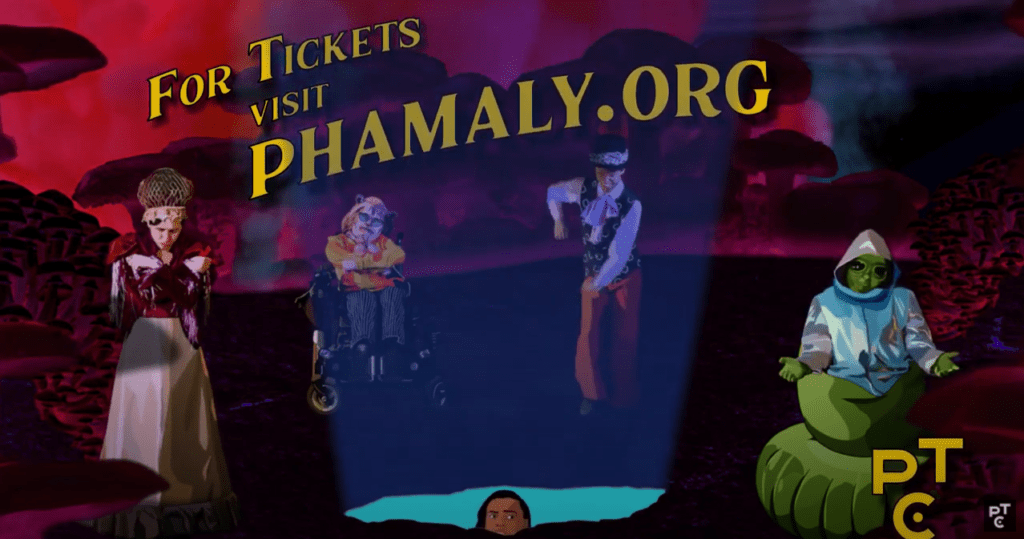
During July celebrations of our nation’s founding, our thoughts often turn toward the nature of freedom as it relates to the higher calling of our country’s creed. We might also think about that concept in the context of freedom to live our lives to their fullest potential and in the ways we each determine individually, regardless of our abilities and challenges. This July, we pause to reflect on the 31st Anniversary of the Americans with Disabilities Act. Signed into law on July 26, 1990, the act represented the first steps toward inclusion for the one in five Americans who live with some form of disability. While there is still much progress to be made, this first acknowledgment in federal law that discrimination in employment, public accommodation, public services, transportation and telecommunications would not be tolerated marked the beginning of real and sustainable change.
In the Denver metro area, this real change included the growth and expansion of the disability community across the arts and culture landscape. Organizations sprouted from this inclusive moment are now mainstays of our performing and visual arts offerings for all Coloradans. Here are the stories of a few who contribute to this shared experience. Meet Teri Wagner, a dance and performance pioneer and founder of Spoke N Motion, Jocelyn Roy, a working graphic artist at Access Gallery and Ben Raanan, the new artistic director for Phamaly Theater Company.
Spoke N Motion Access Gallery Phamaly
Teri Wagner: Spoke N Motion Dance
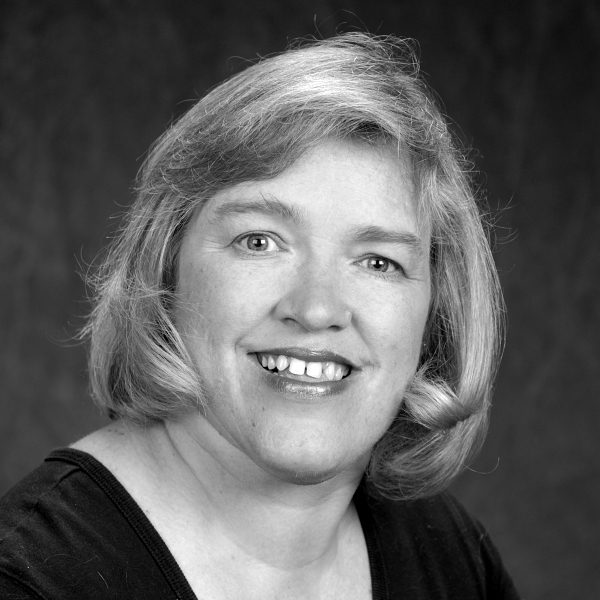
Teri Wagner was born to dance.
At age 11, she joined The Colorado Wheelers, a wheelchair square dance group and never looked back. Since that time, she has not only been a prolific dance performer in the U.S. and internationally in a variety of dance forms including modern, ballet and ballroom, she has also been a foundational player in insuring that artists living with disabilities in Colorado have a home.
Over pizza and beers in her living room, a group of artists – all living with various disabilities – hatched a plan to form a theater troupe. More than 35 years later, that company is a foundational force in Colorado’s theater scene and the spiritual home to hundreds who have graced its productions.
“We were talking and realized that too many of us had the experience of showing up for an audition and not even getting the chance to sing or dance or perform in any way before we were told, ‘No,’” Wagner said. “They just did not know what to do with us. We decided that night that if they weren’t going to give us the chance to perform, we’d start our own company and do it anyway.”
That night, Phamaly Theater Company, which bills itself as a creative home for theatre artists with disabilities, was born. Early productions typically featured music and dances numbers and Wagner was front and center for those. She was also front and center for the opportunity to see inclusion reach her community. She wanted to challenge the thinking that people living with disabilities were better off sitting in some quiet corner of the world.
“I wanted to make sure that everyone like me had the chance to experience the joy of performance. For me it’s dance. For others it was theater. But having an artistic soul and a desire to express that is just as common in my community as it is in any community. Our trouble is gaining acceptance that we have contributions to make,” she said.
After years of struggling for rehearsal and performance space, the Denver Center for the Performing Arts stepped in and gave the theater company a permanent home, the Space Theater.
During her time with Phamaly, Wagner got numerous chances to expand her dance repertoire and to discover that her passion was pure dance performance. She set her head and heart to forming her own company, and in the fall of 2012, she did just that by launching Spoke N Motion. The dance company promises a place where those with and without disabilities a place to explore the world of movement and dance together. Dancers there offer five to 10 performances each year featuring one major production.
“I do it for my own love of dance and the joy I find in it. But I also do it because of my love and compassion for people. It’s goes way beyond me. When people see that passion of the dancers on stage they understand,” Wagner said. “My work is about reaching out to the individuals and allowing them to give the very best they can of themselves and for themselves.”
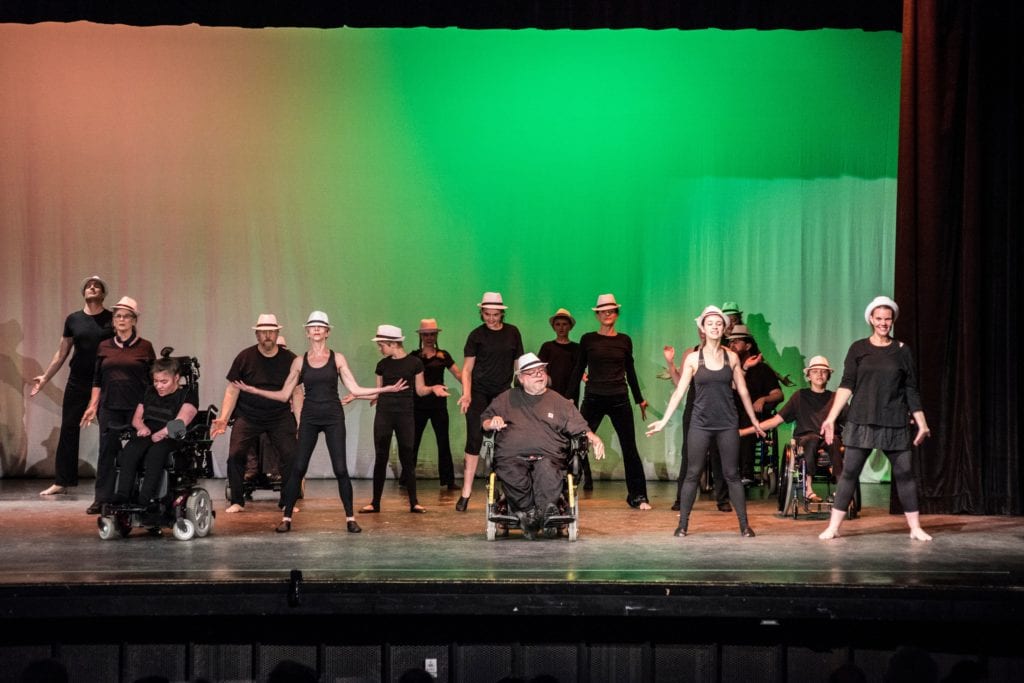
Jocelyn Roy: Access Gallery
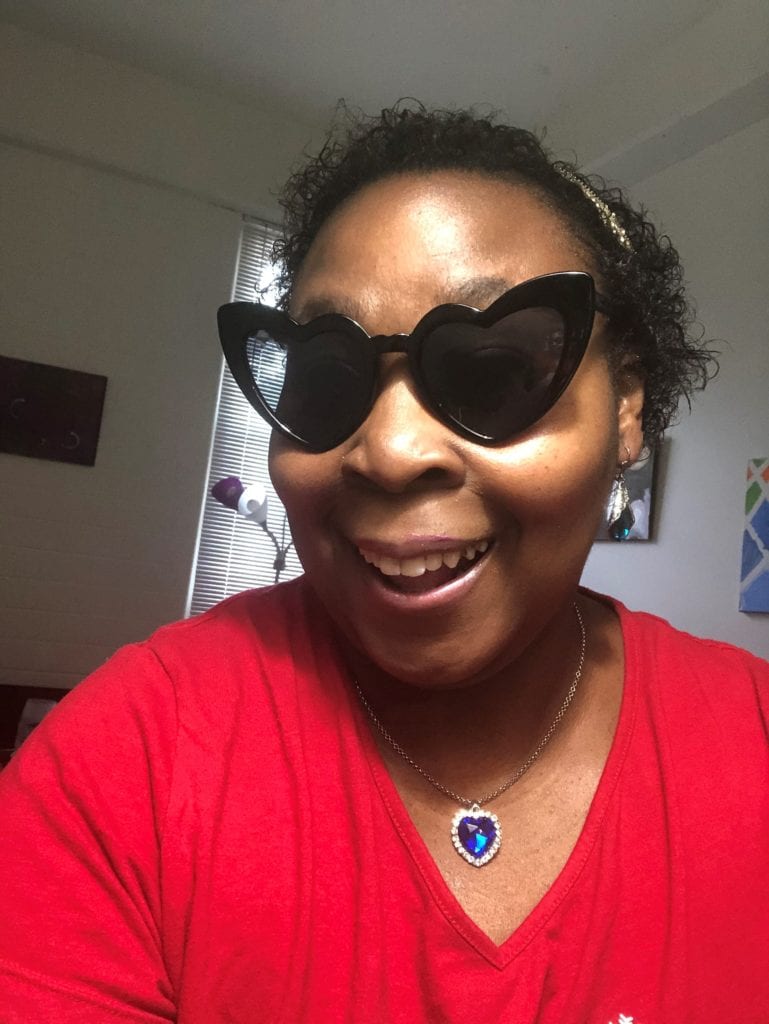
Jocelyn Roy did not always know she wanted to be a graphic artist.
Initially, she thought she wanted to become a lawyer. But cognitive challenges around reading made that dream difficult to achieve. Her mother thought a career as a nurses assistant might be a good goal. But Roy decided she had other talents she wanted to explore.
While looking for an internship, she got connected to Access Gallery. And for nearly two decades, she has made the gallery a home base and space for her creative work, learning new skills and perfecting others. To date, she has sold work through the gallery and found a sort of “spiritual place” where she knows she belongs.
“What I do with my art, it’s my voice. It’s just the way I do things. It takes away all my grief with COVID and personal stuff. I have to do art,” Roy said of her work. “I design almost every day. It’s my voice. It’s spiritual for me to express how I’m feeling. And I feel grateful that people would want a piece of my art.”
Roy is one of many artists working either full or part time at the Access Gallery. The gallery is an inclusive nonprofit organization that engages the community by opening doors to creative, educational and economic opportunities for people with disabilities to access, experience and benefit from the arts. What this means is that young people living with varying degrees of disability have a real chance to earn a living from their artwork. In a world where about 70 percent of them are unemployed, this is a real opportunity to live the life they choose on their own terms.
The artists work alone or in teams, depending on the piece. Their works are for sale in the gallery and are also produced on private and corporate commissions. Many of the area’s leading companies and small businesses including Gart Properties, SexyPizza, CoBiz Bank, Simply Good Foods and BellCo Credit Union have commissioned Access Gallery artists for pieces that hang in their buildings.
For Roy, the chance to make, exhibit and sell her art has been a game changer for her ability to both manage her own future as well as weather the recent death of her mother, the primary pillar in her life.
“I know she is with me and I can feel her encouraging me on,” Roy said. “My mother never stopped believing in me and she never thought there were things I couldn’t do. Now I have to think that for myself. But I am doing it every day and my artwork helps.”
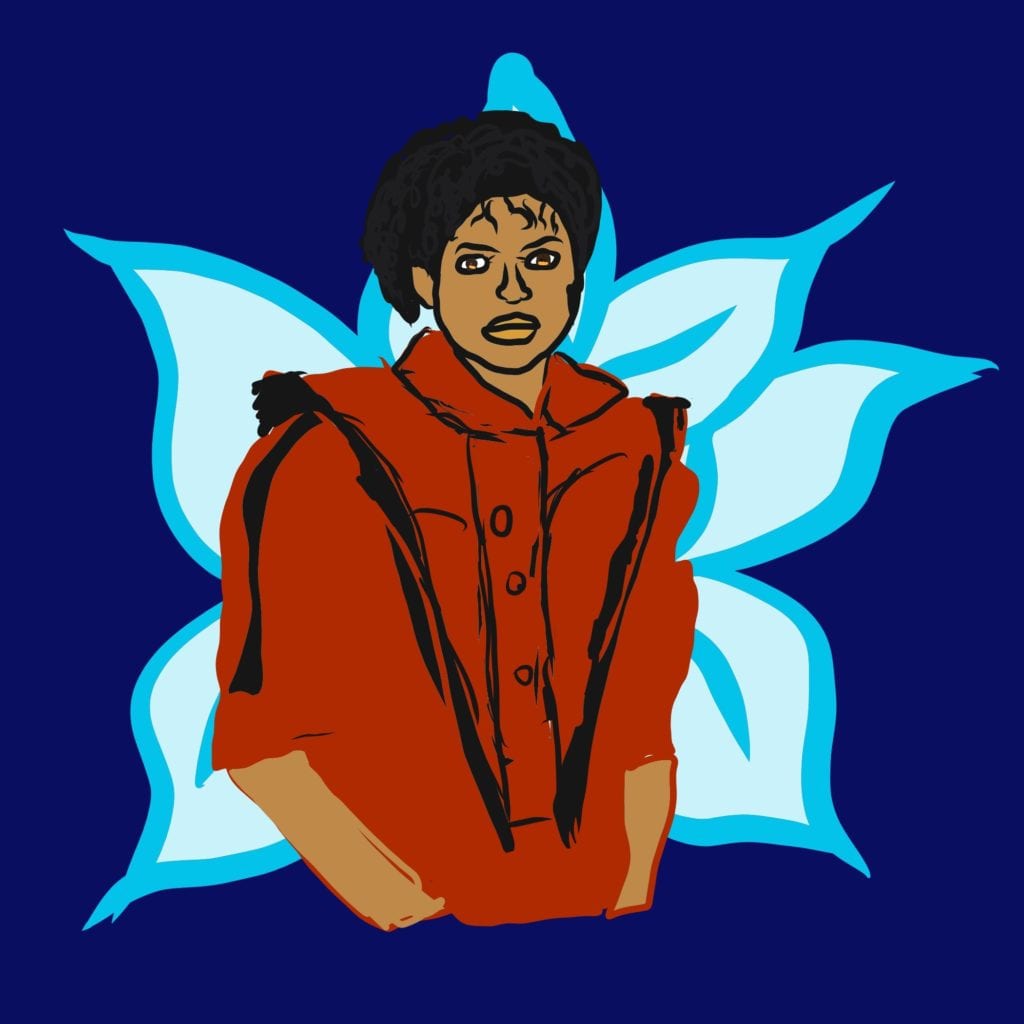
Ben Raanan: Phamaly Theater Company
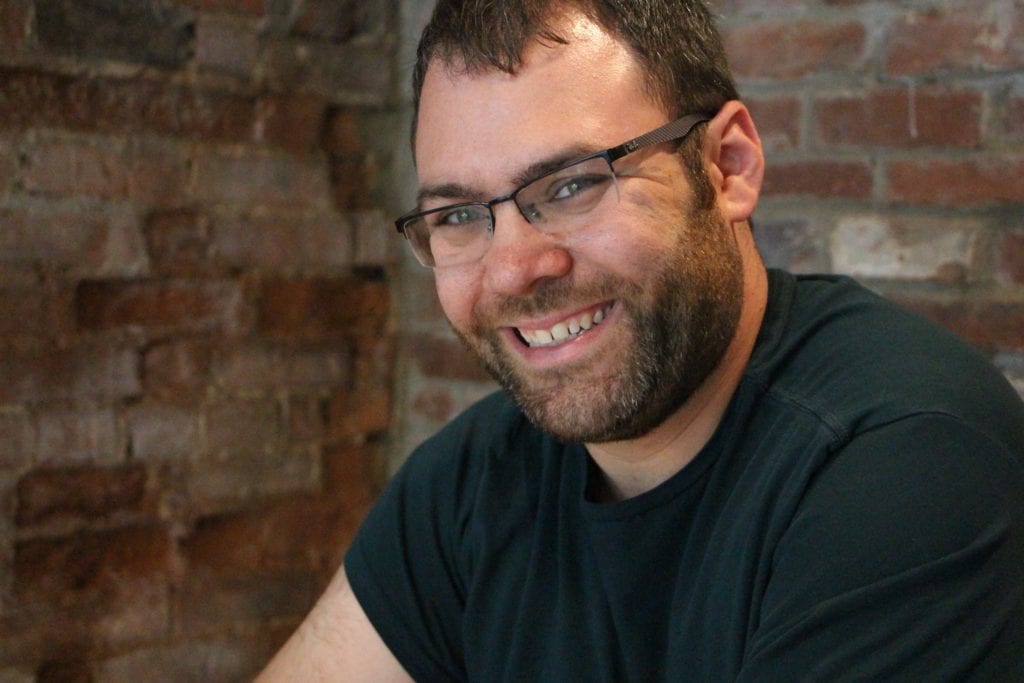
Ben Raanan is a pioneer. He is a rebel and a self-described “militant disabled person and activist.” He is also an artist and hardcore creative.
What he is not is an inspiration.
“The word inspirational is a no go. Disabled theatremakers are not inspirational. We are artists. We are pushing the boundaries of expectation all the time,” Raanan said.
Recently, Raanan has signed on to push another boundary. He’s the new artistic director at Phamaly Theater Company, a lynch pin of the Denver metro theater scene for more than 30 years. The group’s next offering, Alice in Wonderland promises to be a psychedelic romp and one that will challenge viewers. Across its history, Phamaly has seen each actor’s disability as a creative asset, using those unique elements to expand and challenge traditional characters from across the theatrical spectrum.
“I believe that the disabled community can do some really unbelievable things. When I direct or program a production, I want to have a moment where the nondisabled attendees stop and say, I never thought disabled people could do that. Those to me are political acts. Those are transformative acts for everyone involved, the audience and the actors alike,” Raanan said. “These are also moments that humanizes disability. We don’t do disabled theater. We do theater with a bunch of actors and other artists who happen to be disabled.”
For Raanan, this effort to humanize and normalize his own participation has grown to a desire to see that happen for all people living with any type of disability. Raanan has a physical disability known as Erbs Palsy as well as a cognitive disability.
He studied at Drake University for his undergraduate and DePaul University for his directorial study. In between those educational stints, he worked at the Ensemble Theater in Cincinnati, Ohio.
“I’ve known about Phamaly’s legacy for ages. It’s shocking to me that the theater community at large doesn’t invest in Phamaly like the cultural institution it is,” he said. I want to help take this legacy and history that is so immense and push it out into the world more. We have an intense footprint in Denver. Now we need to develop the same footprint nationally. We should be at the forefront at all the conversations about disability in the arts nationally. I know we can do that because we’re in the enormous footsteps and the amazing treds of the founders of this theater company.”
